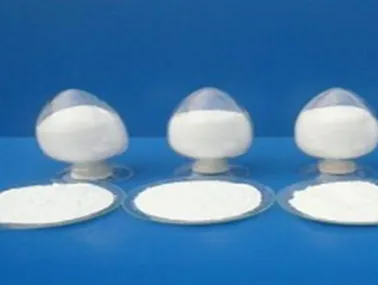
Understanding the Uses and Effects of Food Additive E330 in Food Products
Understanding Food Additive E330 Citric Acid
Food additives play a crucial role in the modern food industry, enhancing flavor, preserving freshness, and improving texture. One of the most common food additives is E330, known as citric acid. This organic acid is naturally found in citrus fruits and is widely used in the food and beverage industry for its versatile properties.
What is Citric Acid?
Citric acid is a natural preservative and is also used to add an acidic, sour taste to foods and beverages. It was first isolated from lemon juice in the 18th century and has since become one of the most frequently used food additives across the globe. Citric acid is classified as E330 when listed in the ingredients of food products, following the EU food additive numbering system.
Uses of E330 in Food Products
One of the primary applications of citric acid is as a flavoring agent. It enhances the tartness of foods and beverages, providing a refreshing taste that is particularly popular in soft drinks, candies, and certain dairy products. It can also help balance sweetness in desserts, making it a favorite among dessert makers.
In addition to flavoring, E330 acts as a natural preservative. Its acidic nature inhibits the growth of bacteria, molds, and yeasts, thereby extending the shelf life of various products. This quality is especially beneficial in products such as jams, jellies, and pickles, where preservation is essential.
Citric acid also plays a vital role in the cooking process. When added to the cooking water of vegetables, it helps retain their color and texture by preventing oxidation. Moreover, in baking, E330 can enhance the effectiveness of baking soda, resulting in a better rise and texture in baked goods.
food additive 330

Health and Safety
Citric acid is generally recognized as safe (GRAS) by authorities such as the U.S. Food and Drug Administration (FDA) and the European Food Safety Authority (EFSA). It is a naturally occurring substance, and when consumed in typical dietary amounts, it does not pose health risks for the general population. However, some individuals may experience sensitivities or allergic reactions, although these cases are rare.
Despite its safety, it is essential to consume citric acid in moderation. Excessive intake, particularly in concentrated forms, can lead to dental erosion or gastrointestinal discomfort. For this reason, manufacturers must adhere to recommended levels in food products, ensuring that consumers remain within safe consumption limits.
Citric Acid in Other Industries
Beyond food and beverages, citric acid has applications in various industries. It is commonly used in cosmetic and personal care products, where it acts as a pH stabilizer and a chelating agent to enhance product stability. Furthermore, it is utilized in cleaning products due to its ability to break down mineral deposits and stains, making it a popular ingredient in eco-friendly cleaning solutions.
Conclusion
E330, or citric acid, is an essential food additive that enhances the flavor, preservation, and quality of a wide array of products. Its natural origins and multiple applications, combined with a robust safety profile, make it a staple ingredient in both the culinary world and beyond. As consumers, understanding the role of citric acid can help us make informed choices about the foods we consume while appreciating the science behind food preservation and enhancement. Whether in your favorite soda or a tangy dessert, E330 is sure to remain a beloved component of our diets for years to come.
-
Buy High-Quality Trichloroisocyanuric Acid for Sale | TCCA 90% SupplierNewsAug.30,2025
-
Pure Sodium Dichloroisocyanurate Dihydrate | Powerful DisinfectantNewsAug.29,2025
-
Industrial Chemicals: Quality & Purity for Every IndustryNewsAug.28,2025
-
Nitrile Rubber Honoring Strict Production StandardsNewsAug.22,2025
-
Aspartame Ingredients Honoring Food Safety ValuesNewsAug.22,2025
-
Fertilizer for Balanced Plant NutritionNewsAug.22,2025
-
Cyanide Gold Processing with High Purity AdditivesNewsAug.22,2025
Hebei Tenger Chemical Technology Co., Ltd. focuses on the chemical industry and is committed to the export service of chemical raw materials.
-

view more DiethanolisopropanolamineIn the ever-growing field of chemical solutions, diethanolisopropanolamine (DEIPA) stands out as a versatile and important compound. Due to its unique chemical structure and properties, DEIPA is of interest to various industries including construction, personal care, and agriculture. -

view more TriisopropanolamineTriisopropanolamine (TIPA) alkanol amine substance, is a kind of alcohol amine compound with amino and alcohol hydroxyl, and because of its molecules contains both amino and hydroxyl. -

view more Tetramethyl Thiuram DisulfideTetramethyl thiuram disulfide, also known as TMTD, is a white to light-yellow powder with a distinct sulfur-like odor. It is soluble in organic solvents such as benzene, acetone, and ethyl acetate, making it highly versatile for use in different formulations. TMTD is known for its excellent vulcanization acceleration properties, which makes it a key ingredient in the production of rubber products. Additionally, it acts as an effective fungicide and bactericide, making it valuable in agricultural applications. Its high purity and stability ensure consistent performance, making it a preferred choice for manufacturers across various industries.





